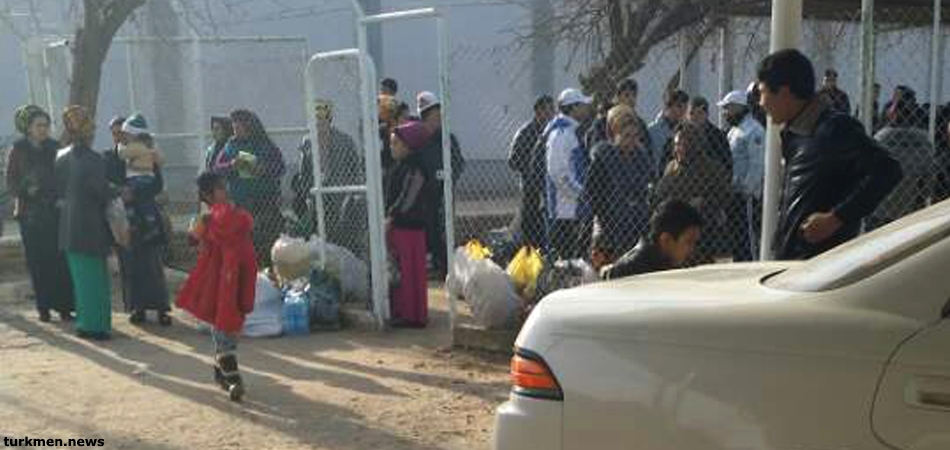
Turkmenistan: New Charges Fabricated Against Civil Activists
27.04.2022
On May 15 four Turkmen political prisoners — Allamurat Korhanov, Murat Dushemov, Nurgeldi Halykov, and Murat Ovezov — wrote a letter to the UN representative office in Turkmenistan asking to meet UN employees in person. The political prisoners are seeking the organization’s protection against lawless behavior.
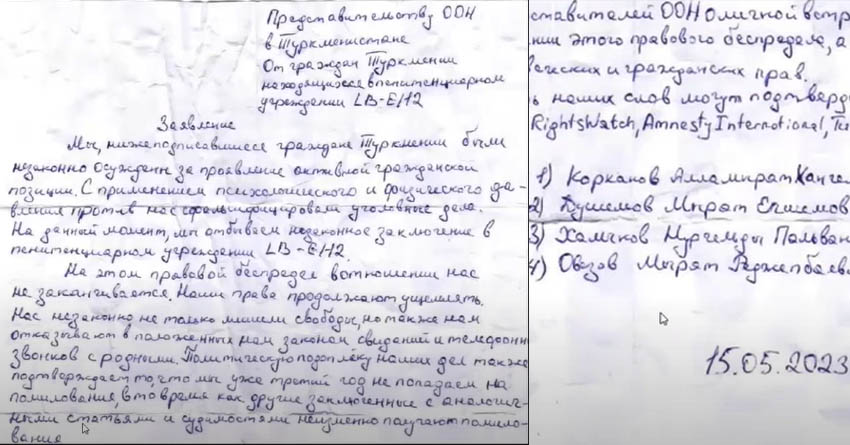
Journalist Allamurat Rahimov displayed the handwritten letter in a broadcast on his YouTube channel. He said he had been given the letter directly from the colony where the political prisoners are serving their sentences.
Turkmen.news presents the content of the letter in English:
To the UN representative office in Turkmenistan from Turkmen citizens in penitentiary LB-E/12
Statement
We, the undersigned citizens of Turkmenia, were illegally convicted for our civil activism. We were put under psychological and physical pressure while criminal cases were falsified. At present we are illegally incarcerated in penitentiary LB-E/12.
This was not the end of the lawless behavior against us. Our rights are still being infringed. Not only have we been illegally deprived of our freedom, we are also refused the meetings and telephone conversations with our families that are our legal entitlement. The fact that for three years running we have not been included in an amnesty, while other prisoners sentenced under the same articles and with similar criminal histories are invariably amnestied, is a sign that our cases are politically motivated.
We are asking the UN representatives for a personal meeting and assistance in tackling this lawlessness and in protecting our human and civil rights as well.
The organizations Human Rights Watch, Amnesty International, and turkmen.news can confirm the veracity of our claims.
1. Korhanov, Allamurat Hangeldyyevich
2. Dushemov, Murat Yegshemovich
3. Halykov, Nurgeldi Palvanovich
4. Ovezov, Murat Rejepbayevich
15.05.2023
Turkmen.news has repeatedly urged international organizations to put pressure on the Turkmen authorities to free Nurgeldi Halykov and the other activists. Human rights organizations, the Committee to Protect Journalists, and members of various UN committees have made many statements asking former President Gurbanguly Berdimuhamedov and current head of state Serdar Berdimuhamedov to immediately release Halykov. Halykov has been included in the monthly list of persecuted journalists drawn up by the One Free Press Coalition.
Responding to a query from the Norwegian Helsinki Committee in fall 2022, the World Health Organization promised to raise Halykov’s case; they are after all indirectly related to the activist’s nearly three-year incarceration. But there have not yet been any reports of specific steps in this regard. At the same time the International Accountability Project (IAP) has published research that the much-vaunted WHO visits (there were just two in all) not only failed to enable the discovery of real data about COVID-19 in Turkmenistan, but helped cover up the epidemic.
In 2021 three American senators — Richard (Dick) Durbin, Patrick Leahy, and Sherrod Brown — and member of the US House of Representatives Tom Malinowski wrote a letter to Berdimuhamedov Senior in support of Halykov and other political prisoners.
Unfortunately, the Turkmen authorities have not yet replied to the demands and statements of international organizations, but are continuing to turn the screw on all four prisoners. Nurgeldi Halykov is not only regularly sent to the punishment cell, there are also fears that the conditions of his detention will be toughened and that a new case will be fabricated to extend his four-year term. In Turkmenistan political prisoners often receive new sentences while they are in a prison colony.
The fact that these people are actually political prisoners is confirmed by the attention paid to their cases by the deputy minister of national security, Orazgeldi Meredov. Turkmen.news revealed that Meredov himself interrogated all four — Halykov, Ovezov, Korhanov, and Dushemov. If the Turkmen authorities are to be believed, they were accused of very common criminal offences: petty fraud for commercial gain, hooliganism, and affray. If this was the case, why was the National Security Ministry involved? What do “hooligans and fraudsters” have to do with national security, especially at deputy ministerial level?
Turkmen.news calls on the UN representative office in Ashgabat to react promptly to the letter from Allamurat Korhanov, Murat Dushemov, Nurgeldi Halykov, and Murat Ovezov, and demand that the Turkmen leadership arrange a meeting with the prisoners. We think that all four activists should be released immediately. The UN should not be satisfied with stonewalling from the Turkmen government that “all laws are observed in the country” — especially since the authorities do not try to provide any evidence or to cover things up properly.
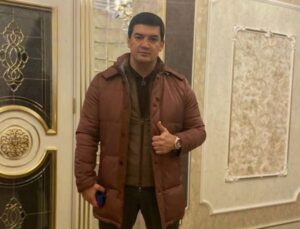
Upmarket Bar in Ashgabat Closed After Brawls Involving President’s Cousins
08.04.2024

Petrofac Back in Favour in Turkmenistan After Falling Foul of Berdimuhamedov
18.03.2024
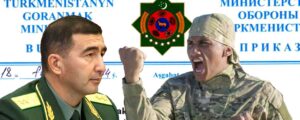
Turkmenistan’s Defense Minister Deprived Officers From Housing Entitlement Despite Widespread Resignations
28.02.2024
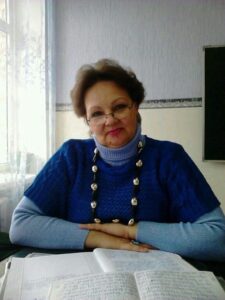
Murder and Suicide at Troubled Turkmen School
28.02.2024
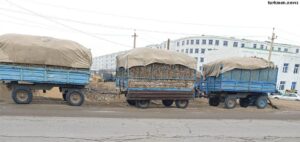
Low Prices Lead Turkmen Farmers to Sell Cotton Harvest Residues for Fodder
19.01.2024
Tell us!
Add comment
your e-mail will not be published